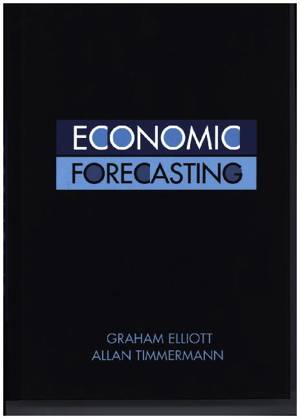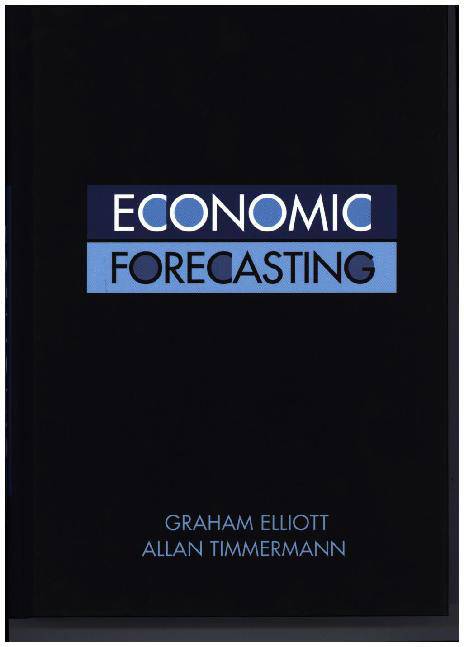
Door een staking bij bpost kan je online bestelling op dit moment iets langer onderweg zijn dan voorzien. Dringend iets nodig? Onze winkels ontvangen jou met open armen!
- Afhalen na 1 uur in een winkel met voorraad
- Gratis thuislevering in België vanaf € 30
- Ruim aanbod met 7 miljoen producten
Door een staking bij bpost kan je online bestelling op dit moment iets langer onderweg zijn dan voorzien. Dringend iets nodig? Onze winkels ontvangen jou met open armen!
- Afhalen na 1 uur in een winkel met voorraad
- Gratis thuislevering in België vanaf € 30
- Ruim aanbod met 7 miljoen producten
Zoeken
Omschrijving
A comprehensive and integrated approach to economic forecasting problems
Economic forecasting involves choosing simple yet robust models to best approximate highly complex and evolving data-generating processes. This poses unique challenges for researchers in a host of practical forecasting situations, from forecasting budget deficits and assessing financial risk to predicting inflation and stock market returns. Economic Forecasting presents a comprehensive, unified approach to assessing the costs and benefits of different methods currently available to forecasters. This text approaches forecasting problems from the perspective of decision theory and estimation, and demonstrates the profound implications of this approach for how we understand variable selection, estimation, and combination methods for forecasting models, and how we evaluate the resulting forecasts. Both Bayesian and non-Bayesian methods are covered in depth, as are a range of cutting-edge techniques for producing point, interval, and density forecasts. The book features detailed presentations and empirical examples of a range of forecasting methods and shows how to generate forecasts in the presence of large-dimensional sets of predictor variables. The authors pay special attention to how estimation error, model uncertainty, and model instability affect forecasting performance.- Presents a comprehensive and integrated approach to assessing the strengths and weaknesses of different forecasting methods
- Approaches forecasting from a decision theoretic and estimation perspective
- Covers Bayesian modeling, including methods for generating density forecasts
- Discusses model selection methods as well as forecast combinations
- Covers a large range of nonlinear prediction models, including regime switching models, threshold autoregressions, and models with time-varying volatility
- Features numerous empirical examples
- Examines the latest advances in forecast evaluation
- Essential for practitioners and students alike
Specificaties
Betrokkenen
- Auteur(s):
- Uitgeverij:
Inhoud
- Aantal bladzijden:
- 568
- Taal:
- Engels
Eigenschappen
- Productcode (EAN):
- 9780691140131
- Verschijningsdatum:
- 5/04/2016
- Uitvoering:
- Hardcover
- Formaat:
- Genaaid
- Afmetingen:
- 183 mm x 257 mm
- Gewicht:
- 1338 g

Alleen bij Standaard Boekhandel
+ 248 punten op je klantenkaart van Standaard Boekhandel
Beoordelingen
We publiceren alleen reviews die voldoen aan de voorwaarden voor reviews. Bekijk onze voorwaarden voor reviews.











